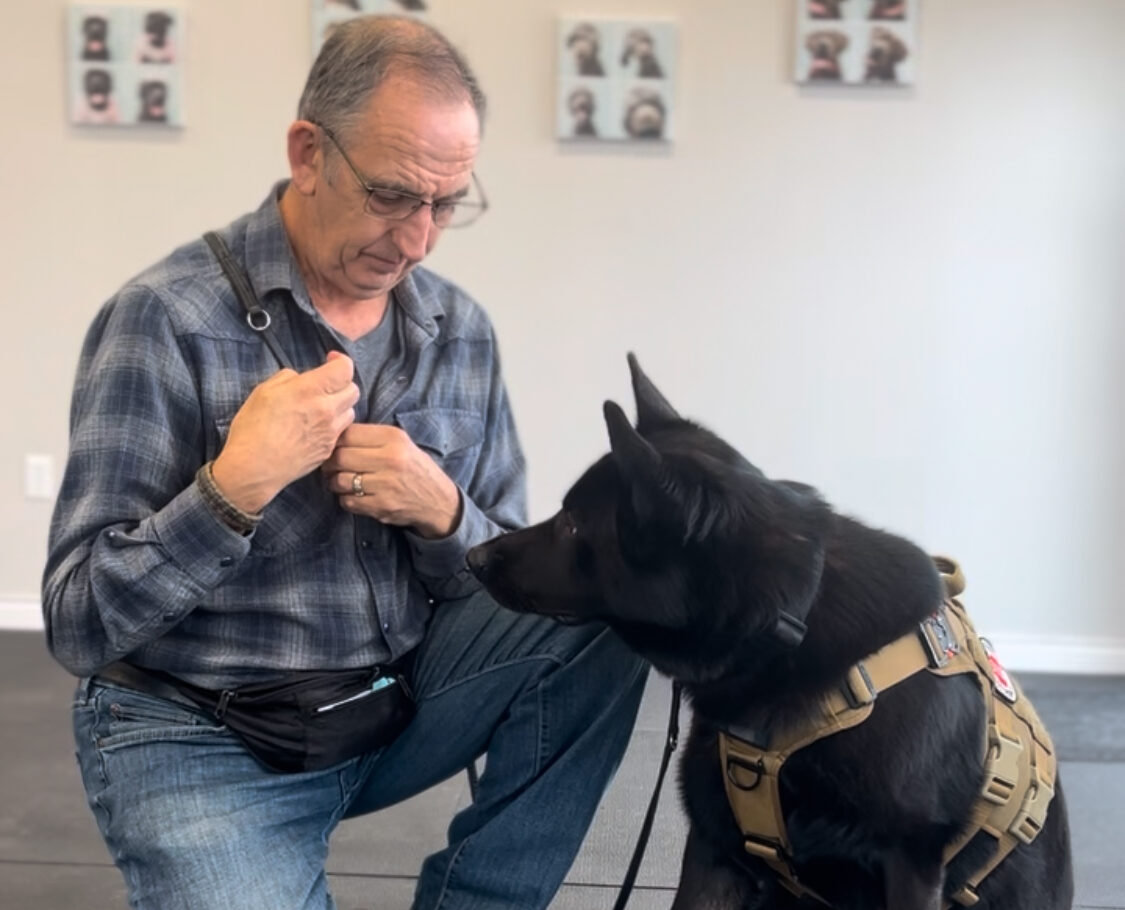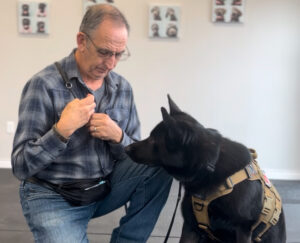Did you know that dog training is an unregulated industry? This means that anyone can call themselves a dog trainer or behaviour specialist, regardless of their education and professional background. Because of this, the dog-training industry can be difficult to navigate: there are many people calling themselves trainers who are unqualified and giving outdated and harmful training advice. So how do you know whether a trainer is legitimate? This blog post is all about being a smart dog-training consumer. When choosing a trainer or behaviour professional, you should be picky-really picky! Below are six tips to keep in mind when searching for a dog trainer.
Note that the info below is for choosing a dog trainer/ behaviour consultant. Other pet professionals such as groomers and pet sitters have other credentials not listed here.
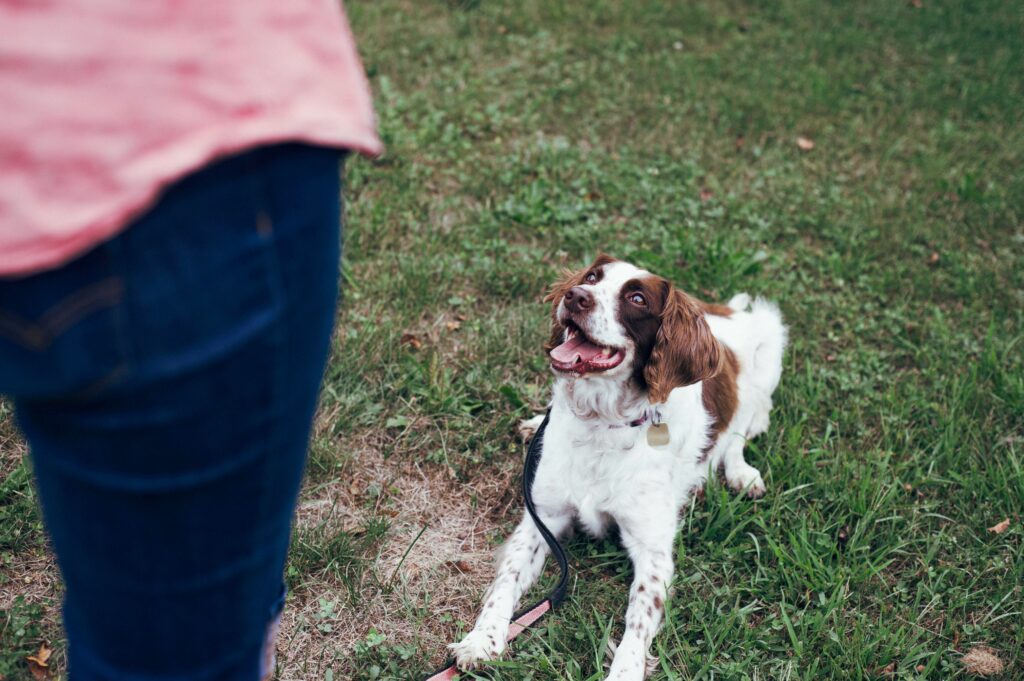
1. Seek Recognized Qualifications Over Flashy Tricks
Look for trainers with certifications from recognized organizations like the IAABC, CPDT, or KPA. These credentials demonstrate a commitment to ethical, evidence-based practices that are up-to-date on the science of animal behaviour and training. Currently, the only qualifications that are considered reputable are those that are grounded in positive-reinforcement, force-free practices. Don’t fall for gimmicks and flashy social-media pages: A fun Youtube or Tik Tok channel isn’t enough to qualify someone as a professional!
Here is a list of some recognized credentials from reputable organizations:
- IAABC (International Association of Animal Behaviour Consultants): CDBC, IAABC-ADT
- KPA (Karen Pryor Academy): KPA-CTP
- ADT (Academy for Dog Trainers): CTC
- VSA (Victoria Stilwell Academy): VSA-CPT
- PPG (Pet Professional Guild)
- CCPDT (Certification Council of Professional Dog Trainers): CPDT-KA, CPDT-KSA, CBCC-KA
- ACVB (American College of Veterinary Behaviourists): DACVB (Note that this certification is for veterinary behaviourists only, not trainers or behaviour consultants)
- Fear Free Certified Professional
- L.E.G.S Applied Ethology Family Dog Mediation : FDM
- Control Unleashed Certified Instructor: CCUI
- Atlas Assistance Dogs Certified Trainer: Atlas-CT
- Certified Separation Anxiety Trainer: CSAT (Note that a trainer promising to help you with true Separation Anxiety should have specific education and possess this credential)
Tip: If you’ve found someone you’d like to train with, look up their credentials. How reputable and recognized are their credentials? Avoid unqualified individuals without proven, evidence-based educations in animal behaviour and training.
Canadian Tip: The CAPDT is the Canadian Association for Professional Dog Trainers and the organization has created by-laws which prohibit trainers from utilizing any punishment based methods whatsoever (including electronic collars, vibration collars, buzz/beep collars, in ANY capacity). CAPDT continues to update resources and clarify for consumers what finding a qualified trainer should look like: CAPDT Choosing a Trainer including their “Find a Trainer” list to help you seek professionals in your area.



2. Prioritize Humane Science-Based Methods and Beware of Quick-Fix Promises
Avoid trainers who rely on outdated dominance-based methods. Modern, science-based training focuses on understanding and addressing the root cause of behaviours, rather than suppressing symptoms. A good trainer will create a training plan that works for you and your dog, while avoiding the use of aversive training techniques and tools (shock collars, prong collars, leash corrections, etc.) as these can cause fear, pain, and stress in dogs. Trainers and behaviour consultants should prioritize welfare at both ends of the leash, and the biological, emotional, and social needs of the animal.
Trainers or pet pros who guarantee results, particularly in the form of “quick fixes” are a huge red flag! Dogs are sentient beings and their behaviour is complex: change takes time, patience, and consistency. Be cautious of trainers who use phrases like “fix any dog in just one session” or who rely on aversive tools like shock collars to suppress behaviours quickly. Remember: suppressing behaviours is not training, and quick fixes are for appliances and cars, not animals!
Tip: Look for trainers who prioritize long-term behaviour change through positive reinforcement and humane methods.
Tip: Avoid trainers who use terms like ‘dominance”, “alpha”, or ” pack leader”. These terms are not relevant or useful in modern dog training, and trainers who use dominance theory to explain behaviour are promoting outdated, debunked theories and practices.
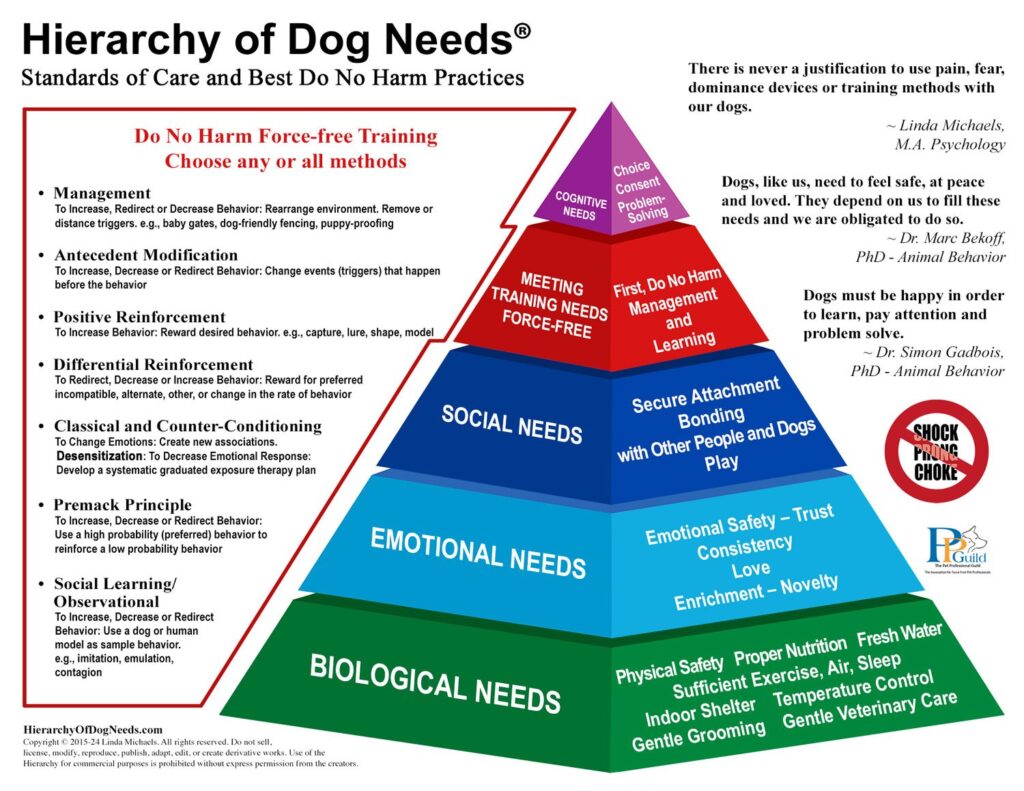
3. Look for Commitment to Continuing Education
All dog trainers and behaviour consultants should be committed to ongoing education throughout the year. In fact, most dog-training certifications and memberships require continuing education for them to renew. This ensures that trainers and behaviour consultants keep up with evolving science, practices, and perspectives in animal training. The industry is always changing as new information becomes available- your trainer or consultant should be doing the same!
Tip: Ask your trainer (or look at their website or social-media accounts): have they completed new courses or attended any conferences in the past year? Are they members of any organizations that require continuing education?
4. Ask for Recommendations Instead of Just Googling
Googling “dog trainers near me” can be a good place to start when looking for a trainer, but it’s not the only way to find someone. Ask a trusted professional such as your general-practice veterinarian or dog groomer about who they recommend and why. You can also call vet clinics in your area and ask for recommendations; if one or two names consistently come up, it’s a good sign that those trainers are reputable.
If looking online, make sure to read reviews carefully and critically: you should look for reviews that detail the trainer’s approach, methods, and ways of communicating and supporting their clients, not just whether the trainer got results. (Many dominance-based trainers will also get results, but may harm the dog in the process!)
Tip: Read reviews, ask for referrals, and get recommendations from your vet or other pet professionals that you know and trust.
5. Observe a Class or Session
Before you sign up, take the time to observe a group class or private session. Watch how the trainer interacts with the dogs and their humans. Are they patient and respectful? Do they adjust their methods to suit each dog’s needs? Do you get the sense that they’re a good fit for you and your dog? These are good questions to ask yourself before booking with a trainer.
Tip: Pay attention to the energy in the room—training should be a positive experience for everyone involved, and the atmosphere should be inviting!
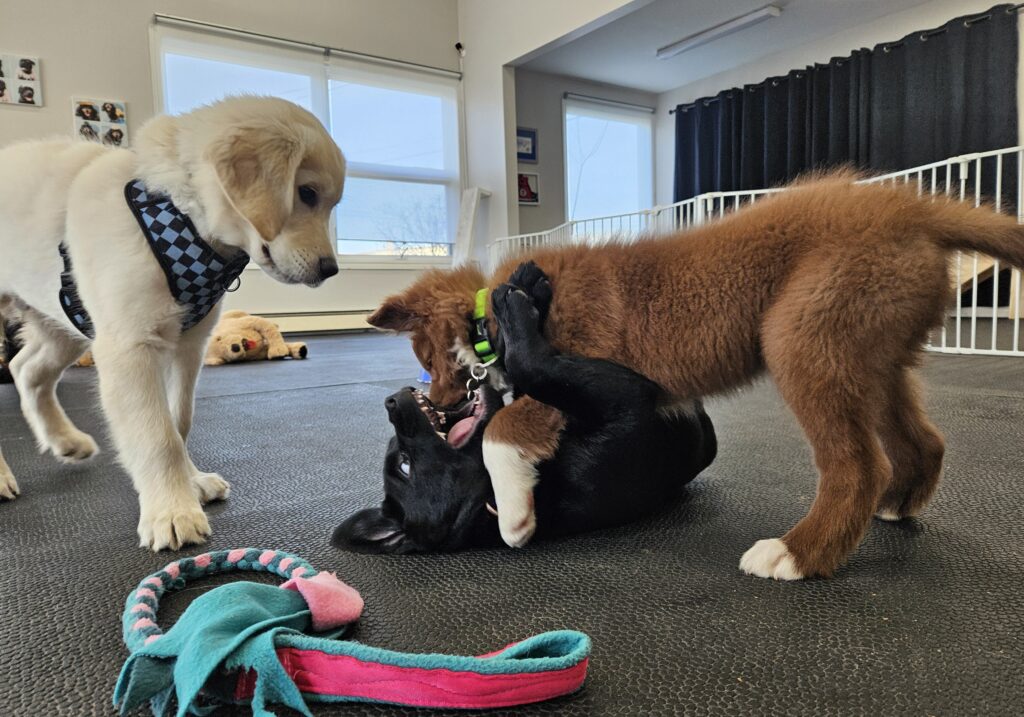
6. Look for a Trainer with Good Communication Skills and Beware of Red Flags
Dog trainers use terms like “operant conditioning, “motivating operations”, and “thresholds.” A good trainer should be able to explain their methods clearly and answer your questions without overwhelming you with jargon. They should be able to tell you why a certain method works, or why you might want to avoid another. They should be able to explain why positive-reinforcement based protocols are important for welfare. Simply put, they should know what they’re talking about and be able to explain it to you clearly and effectively!
Watch out for trainers who:
- Dismiss your questions or concerns
- Use fear, pain, or intimidation in their methods.
- Suggest that dogs need to learn from both rewards and “natural consequences”
- Say the dog is doing it out of jealousy, spite, guilt, to get even, or “because they’re dominant”, etc…
- Ask nothing about veterinary history (an ethical trainer knows there is often more at play including health conditions that can impact behaviour)
- Conversely, make medical/dietary or holistic health suggestions without encouraging you to consult a veterinarian
- Don’t provide clear training plans or follow-ups.
- Guarantee outcomes
Tip: You should feel comfortable asking questions, following up, or asking for clarification. If your gut feeling says you won’t be comfortable talking to your trainer, that’s a red flag!
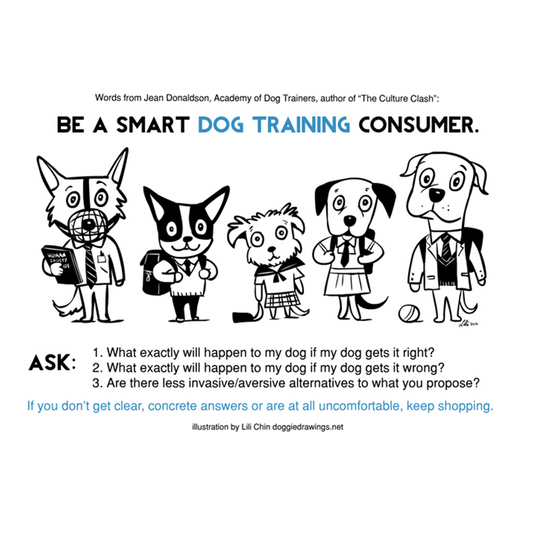
Conclusion:
Training your dog isn’t just about teaching commands—it’s about fostering a relationship between you and your dog built on trust and communication. Choose a trainer whose philosophy matches your goals and values. Do you want a resilient, confident companion? Make sure your trainer prioritizes these outcomes too. Your training journey with your dog deserves a behaviour expert who understands their unique needs and is willing to work closely with you on a customized plan. Choosing the right trainer is an investment in your dog’s well-being and your shared future! Choose wisely and be a smart consumer!
Looking for a trainer? Contact us today to learn how our science-based, compassionate training methods can set you and your dog up for success.
